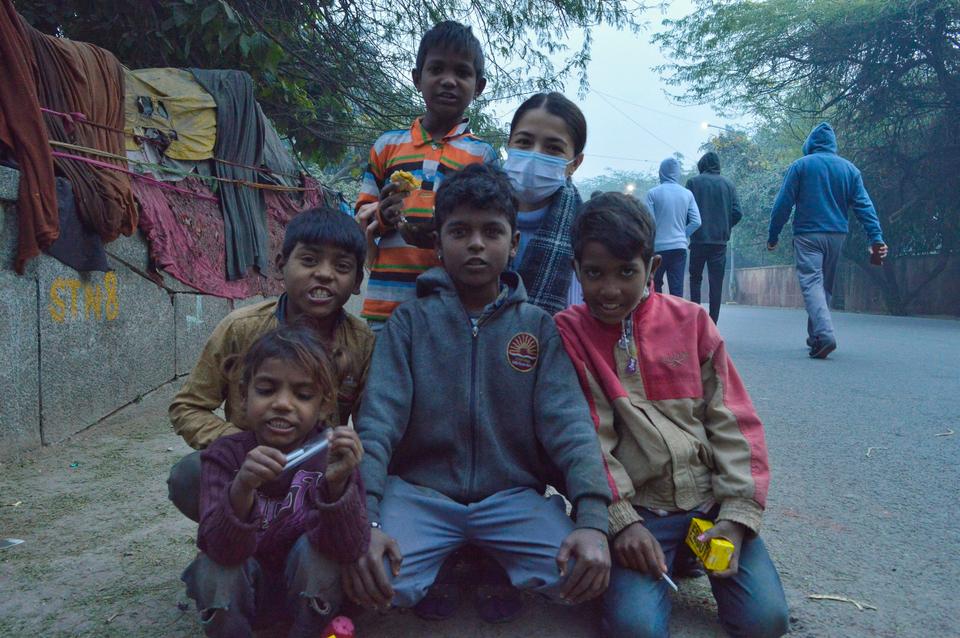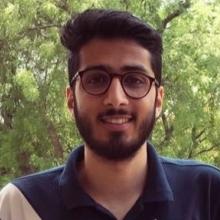Utilising surplus food from eateries, the volunteer-run organisation has served more than 85 million meals to the needy in India and across the world.
On a characteristic chilly December evening in Delhi, 6-year-old Rani sits silently with bare feet beside a nondescript road which is also home to her shanty made of tarpaulin and corrugated iron.
But on recognising an approaching car with a familiar face at the front, she hurriedly runs towards it, trying to beat out other children who also race towards the vehicle. They are soon to relish the 'favourite food' which the bhayas (brothers) and didis (sisters) in green jerseys frequently bring them.
Rani's parents ‒ like those of many other children who live near her in temporary self-made shelters ‒ can barely afford to provide two meals for her. So whenever that car with familiar faces visits her area, she and other kids run to get hold of as much food as they can.
Those familiar faces are ‘Robins’ or volunteers of the Robinhood Army: a movement initiated by scores of youngsters in India to collect excess food and distribute it among the poor.
A zero-funds volunteer organisation that derives its work force largely from young students and working professionals, the Robinhood Army was formed in 2014 in Delhi with an aim to utilise surplus foods often wasted at restaurants and large social gatherings.
"At the end of the day almost every restaurant has a certain amount of spare food that is perfectly edible and yet gets wasted. So what we do is we try to reach out to them, collect this food from them and distribute it among those who need it," says Abdul Wahid, a head volunteer based in India's capital who has been associated with the organisation for the last two years.
"The problem actually is not the availability of food but unequal distribution. If the amount of food we see that is being wasted each day at different places is distributed among the needy, I don’t think anyone will sleep hungry," Wahid told TRT World.

Poor food distribution in India
Wahid's assertion can be understood from the fact that even though India has entered into the list of top ten countries in terms of exporting agricultural produce, 14 percent of the country's population remains undernourished.
According to the 2021 Global Hunger Index, India ranks 101 out of 116 countries with a level of hunger considered as “serious”.
"Even if there are buffer stocks of food grains lying with the government, people don’t have purchasing power to buy those. 67 percent of people in our country need food security but the public distribution system doesn’t reach out to them," explains Ranjit Singh Ghuman, a leading agricultural economist.
"We have a very exclusive model where the concentration of wealth and income is in the hands of few and this naturally puts us in a position where we stand now," Ghuman told TRT World.
The Food and Agriculture Organization (FAO) estimates 189.2 million people are undernourished in India according to its ‘The State of Food Security and Nutrition in the World, 2020' report.
"We are aware of the humongous crisis we have to deal with. So going out on occasional food drives won't help," says 22-year-old volunteer Fariha, who spends her weekends working for the Robinhood Army.
"So we continuously identify more and more restaurants and eateries and try to convince them to be our partners. These restaurants then provide us food each day and we already have teams lined up to distribute it in various slum clusters that we have identified," she told TRT World.

Robins alleviating hunger
The Robinhood Army has managed to create self-sustained chapters across the world who look after their local communities. Whatever transport and logistical expenses are borne by the volunteers themselves.
"Usually the small costs we incur are of transport and we spend that from our pockets. We don’t receive or take any funds. Everything is done through food partnerships with our partners (restaurant owners)," Wahid says.
So far, more than 100,000 volunteers have served over 85 million meals to the poor and needy in a dozen countries - targeting people living in slums, orphanages, old age homes and patients stuck in public hospitals.
"We have served 12.5 million people in Delhi alone," Manish Kumar Sah, who leads Robinhood Army’s Delhi chapter, told TRT World.
"Taking inspiration from the Refood Program in Portugal, we started Robinhood army from the streets of Delhi but today our presence has exceeded in more than 250 cities which include areas from lower and middle income countries like Brazil, Nigeria, Pakistan and Uganda," adds Manish.
With no funds to increase their outreach, the Robins utilise the amplification power of social media to lure more volunteers into their fold. "We photograph our drives and upload them on platforms like Instagram and Facebook to maximise our reach and it is there where we find many more people willing to join us. This has made us an ever increasing network," says Wahid.
"Thousands have joined. Many more thousands are in line to join us and work to alleviate hunger. The job is only 1 percent done!"















0 Comments